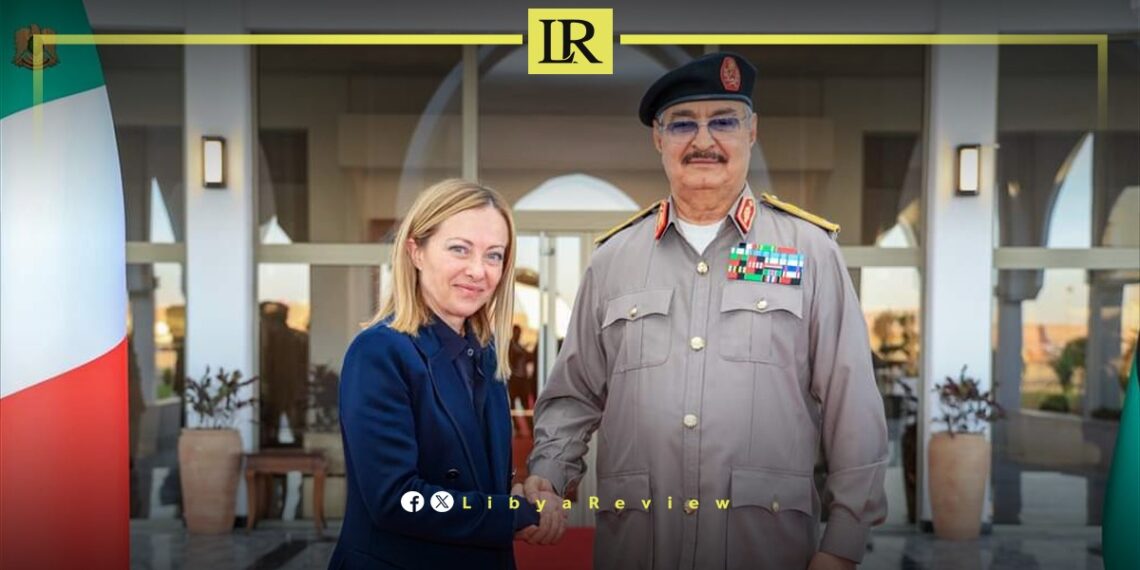On Tuesday, Field Marshal Khalifa Haftar, the Commander-in-Chief of the Libyan National Army (LNA), hosted the Italian Prime Minister, Giorgia Meloni, at the General Command headquarters in Benghazi, along with her accompanying delegation.
The General Command’s media office reported that Field Marshal Haftar welcomed the Italian Prime Minister, expressing his gratitude and appreciation for her visit to Benghazi. The meeting focused on discussing the latest local and regional developments and exploring ways to enhance cooperation and coordination between the two countries.
Both parties discussed the importance of continuing to support the political process in Libya to ensure the successful conduct of presidential and parliamentary elections, aiming to achieve stability in the country.
Prime Minister Meloni expressed her appreciation for the pivotal role of the Libyan Armed Forces in maintaining security and stability and emphasized her commitment to the unity of Libyan territory.
She also highlighted the importance of strengthening the partnership between the two sides in trade, economic, and cultural fields, and continued cooperation in combating illegal migration and human trafficking networks. Measures to mitigate these phenomena were discussed to serve the mutual interests of both nations.
On Tuesday, the Libyan Government of National Unity (GNU) and the Italian government signed three memorandums of understanding (MoU) in the fields of education, health, and sports.
This occurred during the visit of Italian Prime Minister Giorgia Meloni, accompanied by an Italian delegation, to Tripoli. The duration of the visit was not disclosed, according to a statement from the Libyan Government of National Unity.
The Libyan Government of National Unity (GNU) has announced the details of agreements signed by Libya and Italy in the fields of health, youth and sports, higher education, and scientific research.
According to the “Hakomitna” platform, the health sector agreement includes the establishment of Libyan-Italian hospitals in the cities of Tripoli, Benghazi, and Sabha. It also outlines the creation of pharmaceutical manufacturing companies in Libya and the sending of Libyan medical and auxiliary medical staff to Italy for specialised skill development. Additionally, a joint committee will be formed to monitor the implementation of the agreement’s terms.
In the youth and sports sector, the agreement will leverage Italian expertise in training national sports personnel and collaborate with Italian companies to construct three stadiums in Libya.
The agreement in higher education and scientific research includes cooperation with Italian research centers in agriculture and the implementation of joint programs between Libyan and Italian universities. It also aims to increase the number of student seats in scholarship programs and send Italian language graduates to study in Italy.
These agreements signify a deepening of bilateral relations between Libya and Italy, focusing on crucial sectors that promote development and enhance cooperation.


